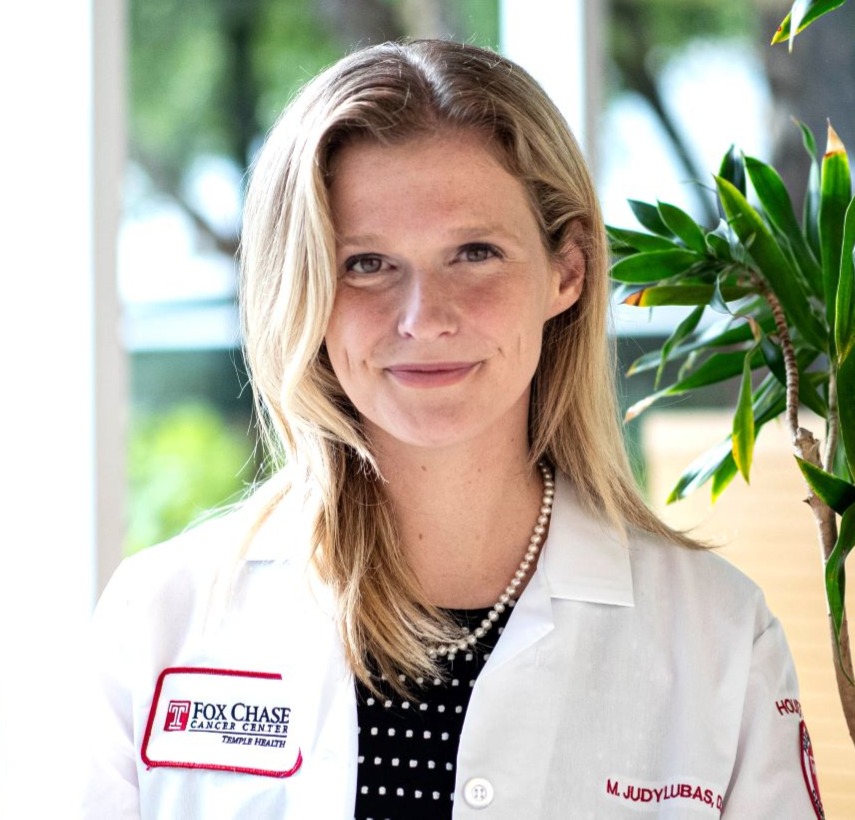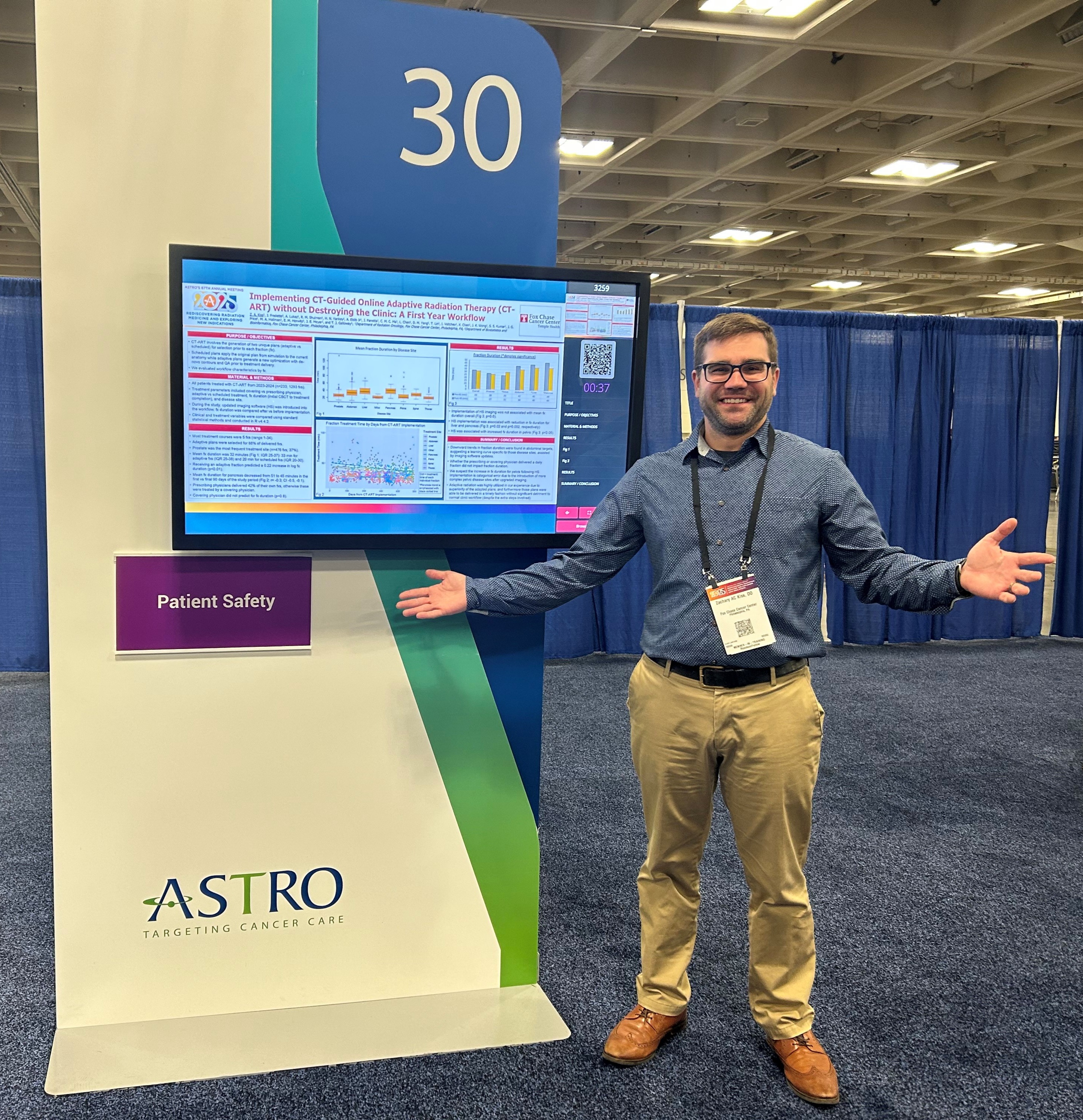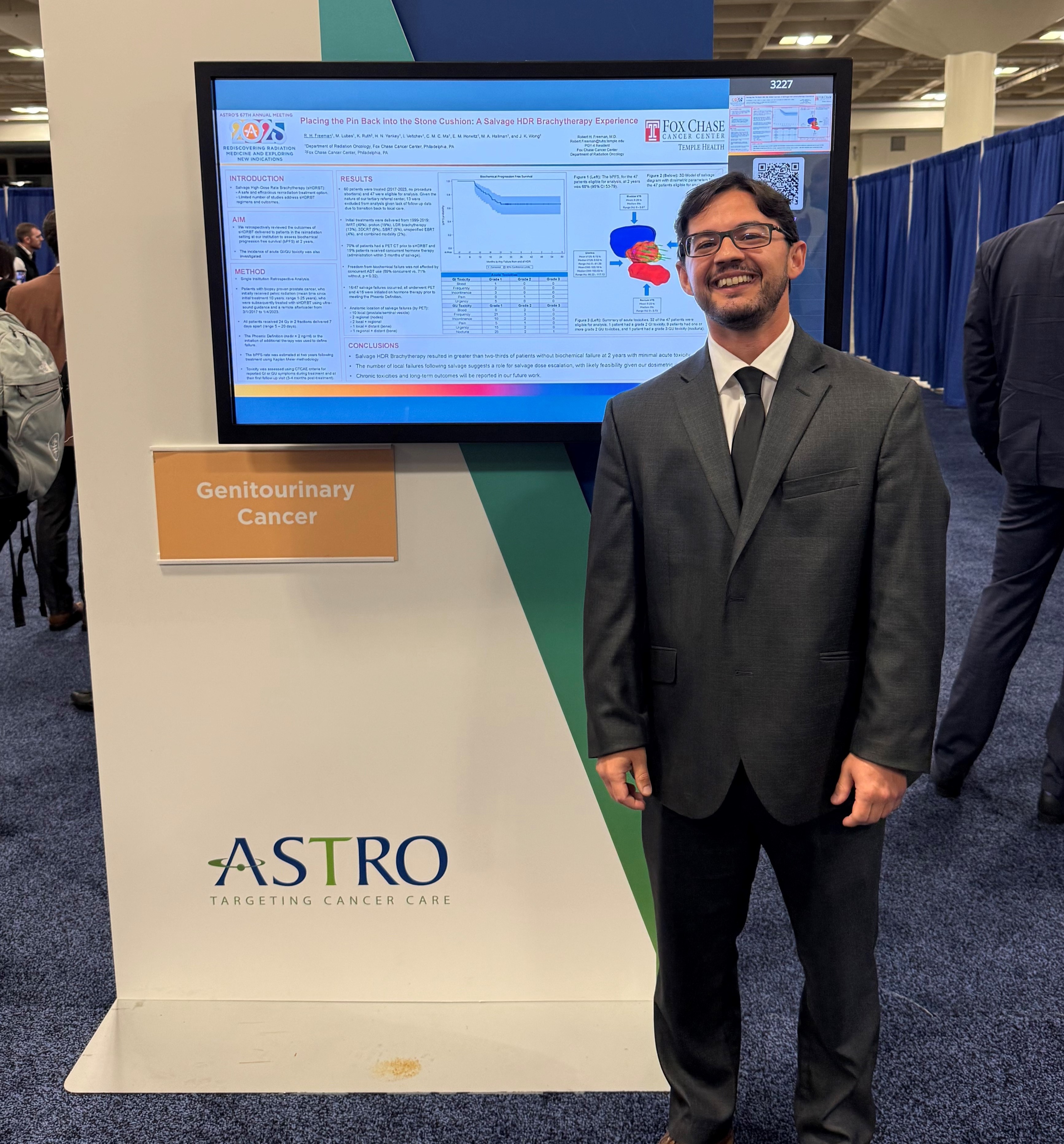

Moving sophisticated clinical ideas into the mainstream is a Fox Chase hallmark. Nowhere was that more evident than at this year’s ASTRO, in the city of the Golden Gate Bridge, where research from Fox Chase radiation oncology residents moved the needle for adaptive radiation therapy and other essential modalities, demonstrating superior outcomes and less toxicity.

Maryanne J. Lubas, DO,
Maryanne J. Lubas, DO, a fifth-year radiation oncology resident at Fox Chase, under the leadership of Rebecca Shulman, MD Assistant Professor in the Department of Radiation Oncology have discovered a new treatment option for patients with recurrent, inoperable retroperitoneal sarcoma by using CT adaptive stereotactic body radiation therapy (CTA-SBRT). An innovative modalitycan make repeat radiation not only possible, but safe—opening the door to long-term disease control. Read more.

Zachary Kiss, DO
Zachary Kiss, DO, a fifth-year radiation oncology resident at Fox Chase, shared his research at ASTRO 2025 in two poster sessions that demonstrated the advantages of CT-ART versus traditional radiation planning. Dr. Kiss’s first study, “Implementing CT-Guided Online Adaptive Radiation Therapy (CT-ART) without Destroying the Clinic: A First Year Workflow,” broadly investigated workflow experiences during the first year of CT-ART to determine if the custom planning for each patient disrupted clinic workflow.
A second study from Dr. Kiss “The Art of Adapting: Plan Selection Rationale in CT-Guided Online Adaptive Radiation Therapy (CT-ART),” examined the rationale for choosing adapted plans and whether the physician designing the daily adapted plan had also designed the originally scheduled plan. Important findings to understand and implement.

Robert Freeman, MD
Robert Freeman, MD, a fourth-year radiation oncology resident at Fox Chase, presented his poster titled “Placing the Pin Back into the Stone Cushion: A Salvage HDR Brachytherapy Experience,” demonstrating that Salvage HDR Brachytherapy (sHDRBT) is a safe and effective re-irradiation treatment for recurrent prostate cancer. Good news for millions of prostate cancer patients.


